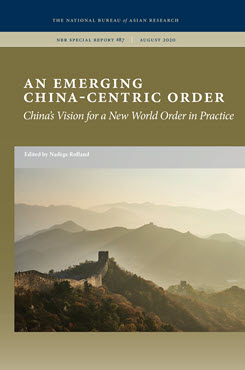NBR Special Report no. 87
Every Step Makes a Footprint
China’s Aid and Development as Incremental Policies
This essay lays out the underpinnings of China’s development and aid policies and analyzes how China’s new assertiveness in this field could challenge and redefine the international system of development finance.
Executive Summary
MAIN ARGUMENT
China has become a structural actor within the development finance system and narrative, with donors trying to find common ground for cooperation and, in the meantime, influence China’s aid and practices. China’s development policies could pave the way for increasing the country’s influence on the international stage without simultaneously advocating for a renewed level playing field in development finance. China’s aid and development policies, far from being part of a clearly formulated grand strategy for change on a bigger scale, are mainly incremental and operating within the international system, and partly thanks to it.
POLICY IMPLICATIONS
- The recent paradigm shift in foreign policy and development finance, culminating in the Belt and Road Initiative (BRI), attests to the new place that China enjoys within the international development ecosystem. China is not becoming a parallel actor of the donor community. Instead, it aims at becoming a structural actor within the system by developing new actors and tactics that level the playing field.
- Beijing is redefining its role in the international development ecosystem by restructuring its architecture for aid and development assistance and promoting domestic development models at an international level, such as BRI. This narrative is now upscaled through various new policies, in some ways framing the choice presented by Chinese aid and development policies as an alternative between a Washington Consensus and a Beijing Consensus.
- Non-Chinese multilateral and bilateral donors could gain some influence by cooperating with Chinese actors under specific circumstances. In order to achieve more pragmatic and positive cooperation, however, there needs to be a better understanding of China’s aid and development policies and how they depart from established best practices.
Alisée Pornet is an Analyst and an Economist in the Eastern Europe, Middle East, and Asia Department within the Operations Department at the French Agency for Development (AFD).



